Small Engine Problems Caused by Ethanol: Mix-I-Go Small Engine
It’s wintertime and most of us (except for the lucky Floridians) have put our small equipment up and away for the winter. 2010 was a rough year for...
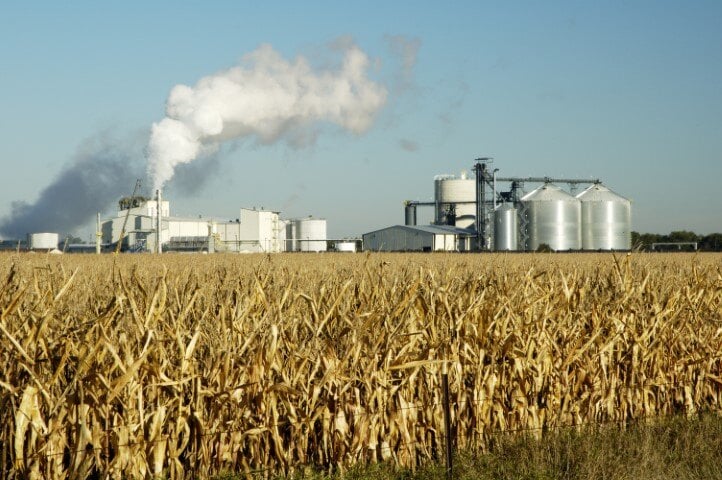
To the surprise of… absolutely no one… news outlets are now picking up the stories of ethanol users finding their equipment damaged by the biofuel. Small-engine mechanics across the country are seeing a dramatic rise in engine damage that can be directly attributable to the minimum 10% concentration of ethanol in gasoline. With the impending rise to 15% in October, they can only expect it to get worse. Check out this recent article in the Orlando Sentinel.
 Depending on who you speak to, there’s a disconnect between what the official “trade groups” are saying and what the mechanics who work on the engines out in the field are saying. Ethanol trade groups claim their extensive testing shows no damaging effects from running ethanol blends in small engines (or “did not show” any effects before the ethanol was rolled out in masses a few years ago). But what mechanics report out in the field makes for a compelling contradiction when you couple those reports with what’s known about the properties of ethanol itself. The fact that ethanol sucks up water and suspends it in fuel means the water gets carried into the engine where it gums up carburetors and corrodes engine parts. This leads to accelerated wear, corrosion, and breakdown – which is what the mechanics are reporting in the first place.
Depending on who you speak to, there’s a disconnect between what the official “trade groups” are saying and what the mechanics who work on the engines out in the field are saying. Ethanol trade groups claim their extensive testing shows no damaging effects from running ethanol blends in small engines (or “did not show” any effects before the ethanol was rolled out in masses a few years ago). But what mechanics report out in the field makes for a compelling contradiction when you couple those reports with what’s known about the properties of ethanol itself. The fact that ethanol sucks up water and suspends it in fuel means the water gets carried into the engine where it gums up carburetors and corrodes engine parts. This leads to accelerated wear, corrosion, and breakdown – which is what the mechanics are reporting in the first place.
Two-stroke engines (lawnmowers and small garden equipment) that mix fuel and oil for operation see even worse damage. When ethanol attracts water, it interferes with the ability of the suspended lubricant to disperse and reach critical engine parts. Bigtime mechanical failure is the inevitable result.
Beyond both of these, ethanol users have to deal with the dissolving of the fuel lines and rubber parts that the ethanol contacts as it sits in the tank and equipment. So they pull out their equipment for use and find it inoperable with a leaking fuel line, or worse.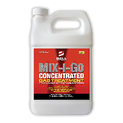
Since it’s impossible now to avoid ethanol in gasoline, the best prevention you can use is a ethanol fuel stabilizer that is non-alcoholic and will blunt the damage ethanol does in the engine. Bell Performance Mix-I-Go has a multi-functional formula to address all the major ethanol issues – protection of rubber and plastic from corrosion, removal of harmful water, detergency to keep the engine clean and free from ethanol-caused deposits. Mix-I-Go extends the life of all types of equipment and puts money back in your pocket.
Update 1/26/2011: Bell Performance is pleased to announce MIX-I-GO SMALL ENGINE FORMULA. It is specially formulated for both two- and four-cycle engines, solving ethanol-related problems in gasoline engines for small equipment like riding and push lawn mowers, lawn edgers, chain saws, leaf blowers, stand-alone generators, and other types of small gasoline-powered equipment.
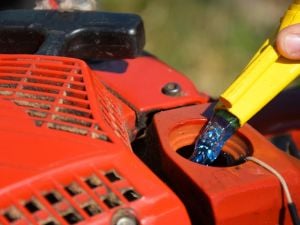
It’s wintertime and most of us (except for the lucky Floridians) have put our small equipment up and away for the winter. 2010 was a rough year for...
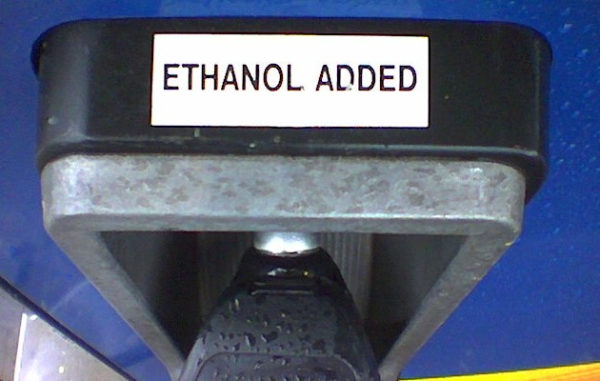
The engine and fuel system problems associated with ethanol in fuel have been documented for years.
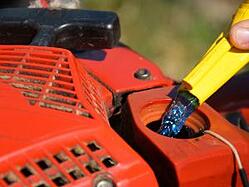
Many kinds of motorcycles, scooters, ATVs, and go-karts have something in common with lawn mowers, generators and many other smaller machines –...